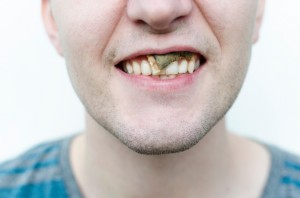 The Fort Worth dentist, Renee Corbitt, DDS, recommends patients give up all forms of tobacco including smokeless varieties in order to achieve and maintain the optimal level of oral health. Many patients choose smokeless tobacco believing it to be a healthier option compared to cigarettes, cigars, and other forms of smoked tobacco. However, smokeless tobacco is just as likely as smoking to cause oral cancer and other dental and physical health concerns. Dr. Corbittt and her Fort Worth dental team recommend patients consider giving up all forms of tobacco to achieve superior dental health. Call to find out more about the damage caused by smokeless tobacco or to schedule your appointment today.
The Fort Worth dentist, Renee Corbitt, DDS, recommends patients give up all forms of tobacco including smokeless varieties in order to achieve and maintain the optimal level of oral health. Many patients choose smokeless tobacco believing it to be a healthier option compared to cigarettes, cigars, and other forms of smoked tobacco. However, smokeless tobacco is just as likely as smoking to cause oral cancer and other dental and physical health concerns. Dr. Corbittt and her Fort Worth dental team recommend patients consider giving up all forms of tobacco to achieve superior dental health. Call to find out more about the damage caused by smokeless tobacco or to schedule your appointment today.
Smokeless Tobacco Varieties and Dangers
Smokeless tobacco goes by many names, but is found in loose leaf or powdered varieties. Some of the most popular types of loose leaf tobacco are plugs, twists, or pouches of tobacco. Whereas snuff or snus are names for the powdered varieties. Many patients believe switching from cigarettes to smokeless tobacco will help them stay health, but unfortunately, chewing tobacco is still tobacco. Some of the dangers of chewing tobacco include:
- Like smoked tobacco products, smokeless tobacco contains the addictive drug nicotine. Studies reveal that the average dip held in the mouth for half an hour is the nicotine equivalent of smoking three or more cigarettes in 30 minutes.
- Nearly 30 different nitrosamines, cancer-causing chemicals, are found in the ingredients of chewing tobacco
- Smokeless tobacco is frequently the cause of mouth, lip, tongue, and pancreatic cancer, and is known to cause Leukoplakia, a pre-cancerous cell growth.
- Chewing tobacco, while not yet causally related, increases the risk for cancer of the esophagus, colon, bladder, and voice box. These types of cancer are linked to the consumption of minimal amounts of toxins.
Smokeless Tobacco and Oral Health Concerns
While smokeless tobacco has many physical health concerns, the oral health risks are much more numerous than those related to smoking tobacco. Some of the oral health concerns stemming from chewing tobacco usage are:
- Increased risk for gum disease – Holding tobacco in the mouth between the teeth and gums can irritate soft tissue causing gingivitis, a minor form of gum disease. Continued use of tobacco with gingivitis can accelerate the progression of gum disease to the more severe form, periodontitis.
- Increased risk for cavities – Chewing tobacco often contains sugars to make it more flavorful. The sugars sitting on teeth increase the opportunity for bacteria to mix with sugar in an acid attach that decays teeth leading to cavities, root canal infections, and abscessed teeth.
- Increased enamel wear – Many types of smokeless tobacco are gritty or sandy. These exfoliating particles wear away tooth enamel over time.
- Tooth discoloration – Juice produced when saliva and tobacco mix together sits on teeth staining them.
- Loss of taste and smell sensitivity – Chemicals in chewing tobacco kill taste buds and dull sense of smell making foods taste bad, and causing users to need more tobacco to receive the same flavor.
- Halitosis – Bacteria in the mouth are living organisms. That means they consume nutrients from foods, drinks, and smokeless tobacco and produce a byproduct. This waste is the leading cause of bad breath, and the bacterial excretion from absorbing tobacco is one of the strongest smelling.
Call Your Fort Worth Dentist – Renee Corbitt, DDS
Fort Worth dentist, Dr. Corbitt, and her dental team are here to help patients understand the cause and effect of their oral health care concerns. Don’t let smokeless tobacco ruin your smile. Call to schedule an appointment today.


